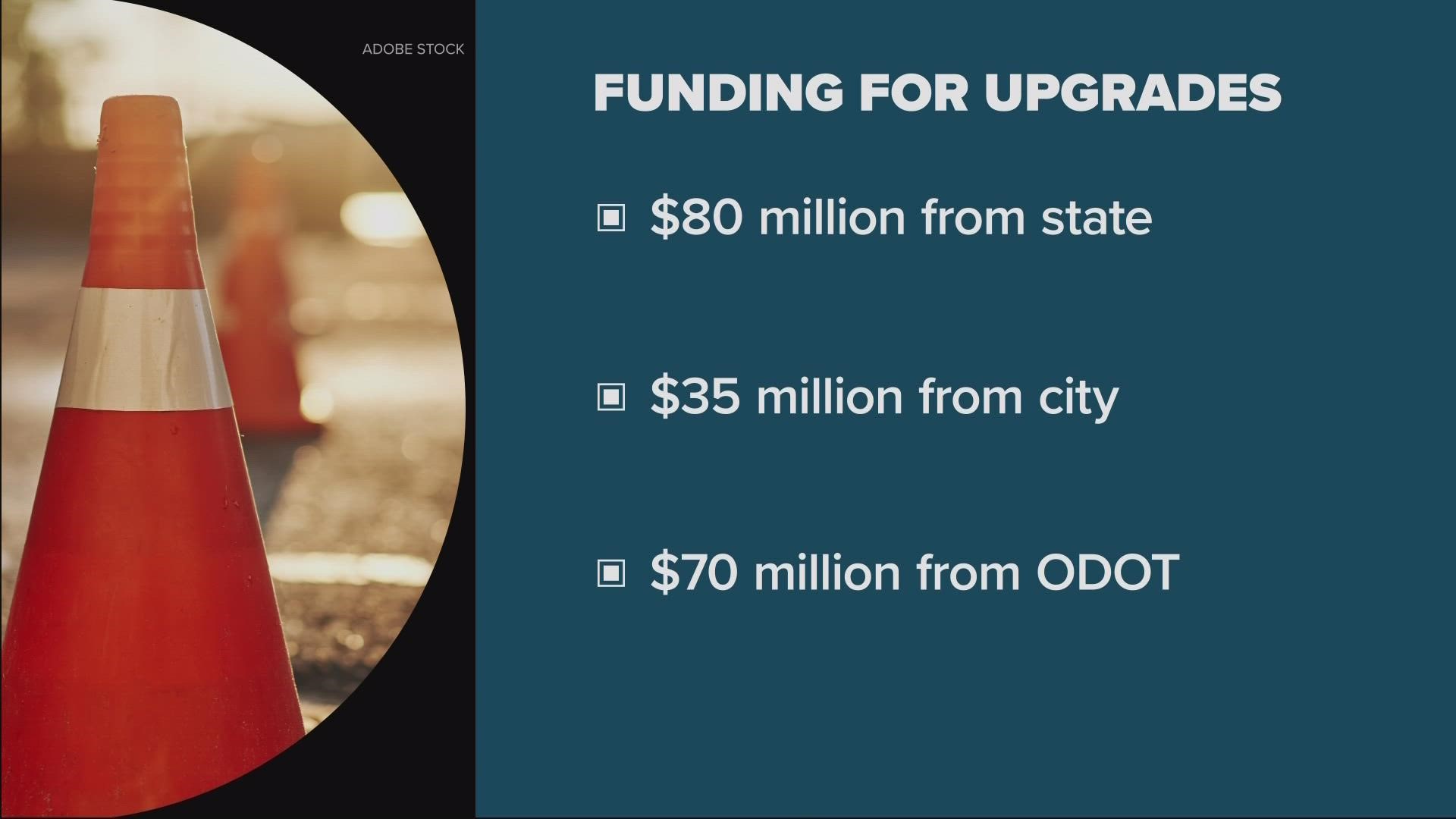PORTLAND, Ore. — After years of effort including community rallies and state legislative action, the Portland City Council gave final approval on Thursday to transfer 82nd Avenue to the city’s jurisdiction, taking over management of the “orphan highway” corridor from the Oregon Department of Transportation.
The milestone drew widespread cheers from elected officials and nearby residents, mixed with reminders about the urgency of safety improvements and the massive scale of the needed upgrades along the 7-mile corridor.
The Portland Bureau of Transportation plans to spend $80 million on 82nd Avenue over the next four years to address its notoriously dangerous reputation. The corridor saw nearly 2,000 crashes from 2015 to 2019, according to PBOT director Chris Warner, and 76 people were killed or seriously injured over the same time period, most of whom were pedestrians.
“Lots of people have worked on this for decades to get 82nd cleaned up, and so I feel like now we’re in a shift in the right direction,” said Heidi Schultz, whose son attends Leodis V. McDaniel High School on Northeast 82nd Avenue.
Schultz is part of a group of parents within the school’s Parent Teacher Student Association who have formed a safety committee to draw attention to concerns about traffic hazards, shootings and criminal activity along the 82nd Avenue corridor.
“There’s a lot of speeding, a lot of running red lights,” she said. “I mean, the scope of safety issues on 82nd obviously go beyond PBOT’s jurisdiction, but some of the issues that have been brought up are the shootings that are happening frequently and in front of the school or near the school during school hours. There’s a question of, could we put cameras at a light north of school? Could we do things that somehow deter this kind of behavior?”
The parents would also like to see a 20 mile per hour school speed zone put in place on 82nd Avenue next to the school, she said, like the one in place by Vestal Elementary School, which is located a bit further south along 82nd Avenue.
McDaniel reopened in September after being closed for a two-year renovation project, and the current school year has been an uncomfortable eye-opener for many parents and students about the dangers of the corridor.
RELATED: Man shot and killed in Northeast Portland is fourth homicide in the area in last eight months
Schultz’s son Dawson, who is attending the renovated McDaniel for his sophomore year after a year of remote learning, said he’s had to be mindful of speeding traffic while walking along 82nd Avenue to get snacks at lunch.
“It is dangerous, you have to just be on alert,” he said. “Most of my friends, they just all know you never jaywalk that street, you never just run across it even if it looks empty because you never know when someone could just come speeding down the way.”
Many of the people providing invited or public testimony at Thursday’s meeting recounted the years of traffic tragedies and close calls on the corridor, and noted that the mismatched thoroughfare has become a symbol of neglect for East Portland residents.
“82nd avenue has been such a dividing line for so many years, both in terms of race as well as class and health impacts, and as we know it’s one of the most racially diverse areas of our state with countless stores, immigrant-owned small businesses, schools, restaurants,” said State Rep. Khanh Pham, whose district includes much of the Southeast Portland portion of the corridor. “And it’s been really dangerous for so many people just merely walking across the street or biking across the street, particularly our youth and elders and people with disabilities, as well as immigrants.”
Ashton Simpson, director of the nonprofit Oregon Walks, urged the council to prioritize safety improvements but also make sure residents who live, work and travel along 82nd Avenue are at the center of envisioning how it should be redesigned.
“Now that we have ownership as a city over the corridor, it will be up to us to decide what that road will look like and how it will work for the community,” he said. “This effort must be led by centering the voices of community and lifting up how they would like to see this corridor work for them.”
Kiel Johnson of the advocacy group Bike Loud PDX also urged the council not to stop at 82nd, but work to take control of other state-owned roads like Barbur and Powell Boulevards.
“The work is far from over. One of the reasons we are here is that ODOT and PBOT have very different missions,” he said. “For so many of the other parts of our city to be successful, we need to be the city in control of our streets.”

